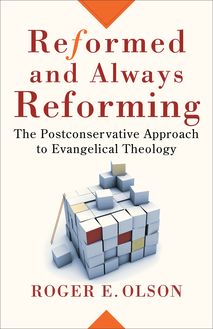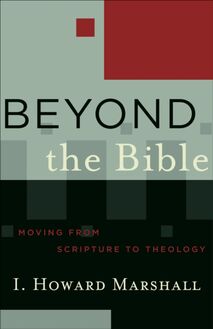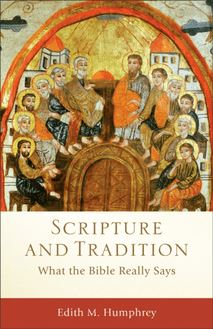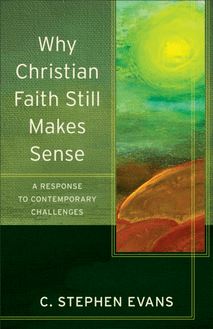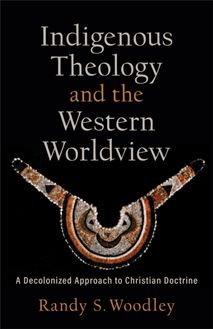-
 Univers
Univers
-
 Ebooks
Ebooks
-
 Livres audio
Livres audio
-
 Presse
Presse
-
 Podcasts
Podcasts
-
 BD
BD
-
 Documents
Documents
-
- Cours
- Révisions
- Ressources pédagogiques
- Sciences de l’éducation
- Manuels scolaires
- Langues
- Travaux de classe
- Annales de BEP
- Etudes supérieures
- Maternelle et primaire
- Fiches de lecture
- Orientation scolaire
- Méthodologie
- Corrigés de devoir
- Annales d’examens et concours
- Annales du bac
- Annales du brevet
- Rapports de stage
La lecture à portée de main
Vous pourrez modifier la taille du texte de cet ouvrage
Découvre YouScribe en t'inscrivant gratuitement
Je m'inscrisReformed and Always Reforming (Acadia Studies in Bible and Theology) , livre ebook
Découvre YouScribe en t'inscrivant gratuitement
Je m'inscrisEn savoir plus
Vous pourrez modifier la taille du texte de cet ouvrage
En savoir plus

Description
Sujets
Informations
| Publié par | Baker Publishing Group |
| Date de parution | 01 octobre 2007 |
| Nombre de lectures | 0 |
| EAN13 | 9781441201102 |
| Langue | English |
Informations légales : prix de location à la page 0,0749€. Cette information est donnée uniquement à titre indicatif conformément à la législation en vigueur.
Extrait
Re f ormed and Always Reforming
Acadia Studies in Bible and Theology
Craig A. Evans and Lee Martin McDonald, General Editors
The last two decades have witnessed dramatic developments in biblical and theological study. Full-time academics can scarcely keep up with fresh discoveries, recently published primary texts, ongoing archaeological work, new exegetical proposals, experiments in methods and hermeneutics, and innovative theological syntheses. For students and nonspecialists, these developments are confusing and daunting. What has been needed is a series of succinct studies that assess these issues and present their findings in a way that students, pastors, laity, and nonspecialists will find accessible and rewarding. Acadia Studies in Bible and Theology, sponsored by Acadia Divinity College in Wolfville, Nova Scotia, and in conjunction with the college s Hayward Lectureship, constitutes such a series.
The Hayward Lectureship has brought to Acadia many distinguished scholars of Bible and theology, such as Sir Robin Barbour, John Bright, Leander Keck, Helmut Koester, Richard Longenecker, Martin Marty, Jaroslav Pelikan, Ian Rennie, James Sanders, and Eduard chweizer. The Acadia Studies in Bible and Theology series reflects this rich heritage.
These studies are designed to guide readers through the ever more complicated maze of critical, interpretative, and theological discussion taking place today. But these studies are not introductory in nature; nor are they mere surveys. Authored by leading authorities in the field, the Acadia Studies in Bible and Theology series offers critical assessments of the major issues that the church faces in the twenty-first century. Readers will gain the requisite orientation and fresh understanding of the important issues that will enable them to take part meaningfully in discussion and debate.
Re f ormed and Always Reforming
The Postconservative Approach to Evangelical Theology
ROGER E. OLSON
2007 by Roger E. Olson
Published by Baker Academic a division of Baker Publishing Group P.O. Box 6287, Grand Rapids, MI 49516-6287 www.bakeracademic.com
Printed in the United States of America
All rights reserved. No part of this publication may be reproduced, stored in a retrieval system, or transmitted in any form or by any means-for example, electronic, photocopy, recording-without the prior written permission of the publisher. The only exception is brief quotations in printed reviews.
Library of Congress Cataloging-in-Publication Data Olson, Roger E.
Reformed and always reforming : the postconservative approach to evangelical theology / Roger E. Olson. p. cm. - (Acadia studies in Bible and theology) Includes bibliographical references. ISBN 10: 0-8010-3169-9 (pbk.) ISBN 978-0-8010-3169-4 (pbk.) 1. Evangelicalism. I. Title. BR1640.O455 2007 230'.04624-dc22
2007017173
Contents
Introduction
1. The Postconservative Style of Evangelical Theology
2. Christianity s Essence: Transformation over Information
3. The Word Made Fresh: Theology s Revisioning Task
4. The Postmodern Impulse in Postconservative Evangelical Theology
5. Postconservative Revelation: Narrative before Propositions
6. Tradition and Orthodoxy in Postconservative Evangelical Theology
7. New Horizons in Evangelical Thinking about God
Conclusion
Introduction
The thesis of this book is simple but controversial: it is possible to be more evangelical by being less conservative . It s simple in that it can be expressed so concisely and straightforwardly. It s controversial because many people, both evangelicals and non-evangelicals, will find it counterintuitive and some will contest it.
For a long time the terms evangelical and conservative have been inextricably linked both in the popular mind and among scholars. To be evangelical, so many think, is to be socially, politically, ethically, and theologically conservative.
However, much depends on how one defines evangelical and conservative. As we will see, these terms are essentially contested concepts. They beg description. No one can simply assume their meanings. Much of the burden of this introduction will be to define and describe these terms theologically and, of course, these definitions and descriptions will be my own, although I rely on noted authorities. The rest of the book will demonstrate how it is possible to be more evangelical by being less conservative or at least how one can be evangelical without being conservative (as these terms are defined here).
What This Book Is About
This is a book about theology and not sociology, politics, or even ethics. These may come into play from time to time, but for the most part evangelical theology is our concern here. Therefore, unless noted otherwise, evangelical here means evangelical theology. And theology means reflection on divine revelation in order to believe rightly and understand what is rightly believed . Theology is process; doctrine is raw material and product. Theology examines doctrines (beliefs about God) and produces doctrines, often by reaffirming, restating, or revising older ones.
Books have already been written attempting to demonstrate that it is possible to be more evangelical by being less conservative politically and economically. A clear case is Jim Wallis s book The Politics of God: Why the Right Gets It Wrong and the Left Doesn t Get It . 1 Largely due to the popular media, many Americans equate evangelicalism with the so-called Religious Right or a conservative political agenda focused on abortion and homosexuality. Wallis argues that it is possible to be authentically evangelical in one s faith and religious commitment while being liberal politically. He is not alone in that contention; evangelical speakers and writers Ron Sider and Tony Campolo have been making the same case for years.
This book attempts to do for evangelical theology what Wallis, Sider, and Campolo have done for evangelical social ethics and politics. By no means do I wish to compare myself with those esteemed gentlemen, but my project is similar even if more feeble in its outworking. Many evangelicals now accept that one can be fully, authentically evangelical and lean leftward politically- especially on issues such as poverty relief, war, and capital punishment. At the same time, however, many or perhaps most evangelicals who think about theology assume that in theology evangelical and conservative are inseparably conjoined.
People ask me what kind of evangelical I am. Simply to identify oneself as evangelical is no longer sufficient; there are too many types and styles of being evangelical in America and in the world. Asbury Theological Seminary professor Kenneth Collins is surely right that there are many ways of being evangelical in America today, and evangelicals delight in that diversity and celebrate such richness. 2 Well, the second half of his statement may not be true for all evangelicals. Especially some conservative evangelicals seem to want to enforce a greater degree of conformity if not uniformity on all evangelicals. However, Collins is right that by and large evangelicals enjoy their diversity, especially in terms of differing worship styles, forms of church government, and views on secondary doctrinal matters such as the order of events in the last times (surrounding the return of Christ), baptism, and the Lord s Supper.
Evangelicalism is undeniably diverse. It is no longer-if ever it was-sufficient simply to say I m an evangelical. Some have adopted the modifier conservative to further pin down what kind of evangelical they are, especially in terms of theological orientation. One contemporary example is theologian Wayne Grudem of Phoenix Theological Seminary. His massive one-volume Systematic Theology has become a standard text in theology courses in many evangelical colleges, universities, and seminaries. 3 Grudem explicitly identifies his style of theology as conservative evangelical and applies that label to the tradition within which he works. This tradition, he claims, goes back to Luther and Calvin and includes at least thirty-four major nineteenth- and twentieth-century systematic theologies. 4
Few evangelical theologians have been willing to step forward and declare that they are not conservative evangelicals. So powerful is the connection between the two terms that to separate them seems tantamount to a declaration that one is not evangelical. However, a few evangelical theologians have openly dared to call themselves postconservative evangelicals. A major thrust of this volume is to examine what that means; how can a theologian or theology be evangelical and not be conservative?
The History of the Term Postconservative Evangelical
The label postconservative first appeared (or should have appeared but didn t) in 1973/1974 with the writing of a little book by Jack Rogers, then a Fuller Theological Seminary professor. Rogers intended its title to be Confessions of a Postconservative Evangelical , but when the book was published in 1974 the prefix was dropped and the title became Confessions of a Conservative Evangelical . 5 Near its beginning he says,
Conservative is a good word. It marks continuity with the past, preservation of enduring values, holding on to what has been proven with time. In this sense I am still a conservative. I want to hold fast what is good (I Thess. 5:21). There is another sense in which the word conservative is used. The dictionary defines conservative as tending to favor the preservation of the existing order and to regard proposals for change with distrust. Being conservative in that sense leads to conservat ism . That is the sense of being conservative which has marked much of my past. That is the sense of being conservative which I want to put behind me. That is the sense of being conservative which confuses Christianity with our culture. Salvation is not found in the status quo . From apostolic times Christians have challen
-
 Univers
Univers
-
 Ebooks
Ebooks
-
 Livres audio
Livres audio
-
 Presse
Presse
-
 Podcasts
Podcasts
-
 BD
BD
-
 Documents
Documents
-
Jeunesse
-
Littérature
-
Ressources professionnelles
-
Santé et bien-être
-
Savoirs
-
Education
-
Loisirs et hobbies
-
Art, musique et cinéma
-
Actualité et débat de société
-
Jeunesse
-
Littérature
-
Ressources professionnelles
-
Santé et bien-être
-
Savoirs
-
Education
-
Loisirs et hobbies
-
Art, musique et cinéma
-
Actualité et débat de société
-
Actualités
-
Lifestyle
-
Presse jeunesse
-
Presse professionnelle
-
Pratique
-
Presse sportive
-
Presse internationale
-
Culture & Médias
-
Action et Aventures
-
Science-fiction et Fantasy
-
Société
-
Jeunesse
-
Littérature
-
Ressources professionnelles
-
Santé et bien-être
-
Savoirs
-
Education
-
Loisirs et hobbies
-
Art, musique et cinéma
-
Actualité et débat de société
- Cours
- Révisions
- Ressources pédagogiques
- Sciences de l’éducation
- Manuels scolaires
- Langues
- Travaux de classe
- Annales de BEP
- Etudes supérieures
- Maternelle et primaire
- Fiches de lecture
- Orientation scolaire
- Méthodologie
- Corrigés de devoir
- Annales d’examens et concours
- Annales du bac
- Annales du brevet
- Rapports de stage
